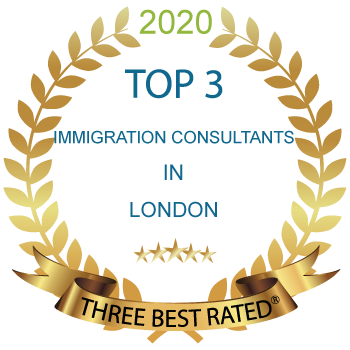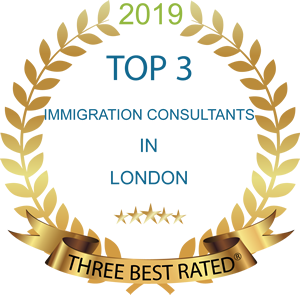UK Ancestry Visa
Applicants must be from a Commonwealth country, aged 17 or over and have a grandparent who was born in the UK. The grandparent should be born in the UK (including the Channel Islands and the Isle of Man); or before 31 March 1922 in the Republic of Ireland; or on a British-registered ship or aircraft.
Visa Entitlements
Successful applicants will be able to seek employment in any field in the UK for a period of up to five (5) years. They will have free access to public schools, and National Health Service. Eligible dependants may also be able to work or study without any restrictions.
Upon successfully holding the Ancestry visa for a total of five (5) years, applicants may be entitled to apply for Indefinite Leave to Remain (ILR).
FAQ
- How many days am I allowed to stay outside UK to apply for ILR?v
-
Do I have to be continuously employed in the 5 (five) years period?v
-
Applicants are not required to be continuously employed while in the UK. The requirement is for them to stay employed or seek further work.
-
-
Rights of Dependantsv
-
Dependants (including children under 18 years of age or husband, wife, civil partner, unmarried partner or same-sex partner) will be eligible to live and stay in the UK with the main applicant. They can live and work in the UK without any restrictions. They will be granted leave in line with the expiry date of the main applicant’s leave.
Dependants will have the following conditions attached to their leave:
- No recourse to public funds;
- Registration with the police, if applicable.
-
-
Conditions of Stayv
-
Applicants will have the following conditions attached to their leave:
- No recourse to public funds;
- Registration with the police, if applicable
-
-
Biometric Requirementv
-
Foreign nationals from outside the European Economic Area making certain applications to the Home Office have to apply for a biometric residence permit. This applies to both postal applications and applications made in person (known as ‘premium applications’). The biometric residence permit is a residence permit which holds a migrant’s biographic details (name, date and place of birth) and biometric information (facial image and fingerprints), and shows their immigration status and entitlements while they remain in the UK. This also means that a UK visa will no longer be stamped in applicant’s passport and all applicants will be issued one of the new Biometric visa cards instead. These cards look very similar to a (pink) UK driving license except they have a microchip on the back.
Applicants who wish to extend their stay in the UK by post, the Home Office will send them a letter asking them to enrol their biometrics after the Home Office have received their application. Applicants will be able to enrol their biometric information one of the Post Offices offering this service across the UK using their walk-in service.
Applicants who are submitting their application in person can do this at one of the Public Enquiry Office (PEO) by using the premium service. Applicants will enrol applicants’ biometric information at the same time as making their application.
For application submitted overseas, the applicants have to provide their biometric enrolment at one of the Visa Facilitation Centres. Successful applicants will receive a 30 day ‘vignette sticker’ in their passport instead of a vignette with the full grant of leave. This 30 day visa will be the date they indicated as their intended travel date in their visa application. Applicants will be required to collect their BRP from the Post Office branch detailed in their decision letter within ten days of arrival in the UK. The Post Office branch is linked to the postcode that they submitted in their visa application. The BRP card can then be used as proof of right to work, study and access public services in the UK.
-
-
Immigration Health Surchargev
-
The Immigration Health Surcharge (IHS) was introduced by the Home Office on 6th April 2015. People (non-EEA) coming to the UK for more than six months have to pay this health surcharge as a part of their immigration application towards the National Health Service (healthcare in the UK).
Offshore applicants will have to pay the health surcharge if they are applying for a visa for a period of longer than six months, and onshore applicant will have to pay the health charge for any length of visa.Applicants will have to pay £150 per year as a student or £200 per year for all other visa and immigration applications. Dependants will usually need to pay the same amount as the main applicant. The exact amount they have to pay depends on how much leave they are granted. They can calculate how much they will have to pay before you apply. If the period of grant applied for is less than 6 months, then half of the yearly amount to be paid and if the period of grant applied for is more than 6 months, then whole year amount is to be paid.
Visa application will not be granted if applicants do not pay the healthcare surcharge or application will be delayed if the right amount is not paid.
Following persons are exempted to pay the IHS:
- Applicants applying for a Tier 2 (Intra-company Transfer) visa and their dependants;
- Applicant under 18 who has been taken into care by a local authority;
- Applicants who arenationals of Australia or New Zealand;
- Dependant of a member of the UK’s armed forces;
- Dependant of a member of another country’s forces who is exempt from immigration control; and
-
Applicants of a relevant civilian employee employed by North Atlantic Treaty Organisation (NATO) or the Australian Department of Defence in the UK and their dependants.
-
-
Government Feesv
-
Home Office fees for Ancestry Visa Application Postal Super Priority Service Overseas Main Appplicant £1,033.00 £1,833.00 £516.00 Partner & Child (<18years), applying together £1,033.00 £1,833.00 £516.00 Partner or child aged under 18 (if they are applying later), or child aged over 18 £1,033.00 £1,833.00 £516.00
-
-
Our Feesv
-
Service Fees (GBP) Manage your application £150 Standard or Postal- Full representation service £500 Super Priority Service - Minus Representation £700 Super Priority Service- Full Representation £950 Document Verification Service £150 Telephone Consultation £100 per/hour Face to Face consultation £100 per/hour Form Filling Service £150 per application * For full description of the services, please refer to our 'Services' section on our website.
-
-
Processing Timesv
-
In line with the Home Office service standards for processing UK visa applications, they decide 90 per cent of non-settlement applications within 3 weeks, 98 per cent within 6 weeks and 100 per cent within 12 weeks of the application date.
Applicants apply for the Same Day at one of Public Enquiry Office (PEO) in the UK; the application is normally decided on the same day.
-










